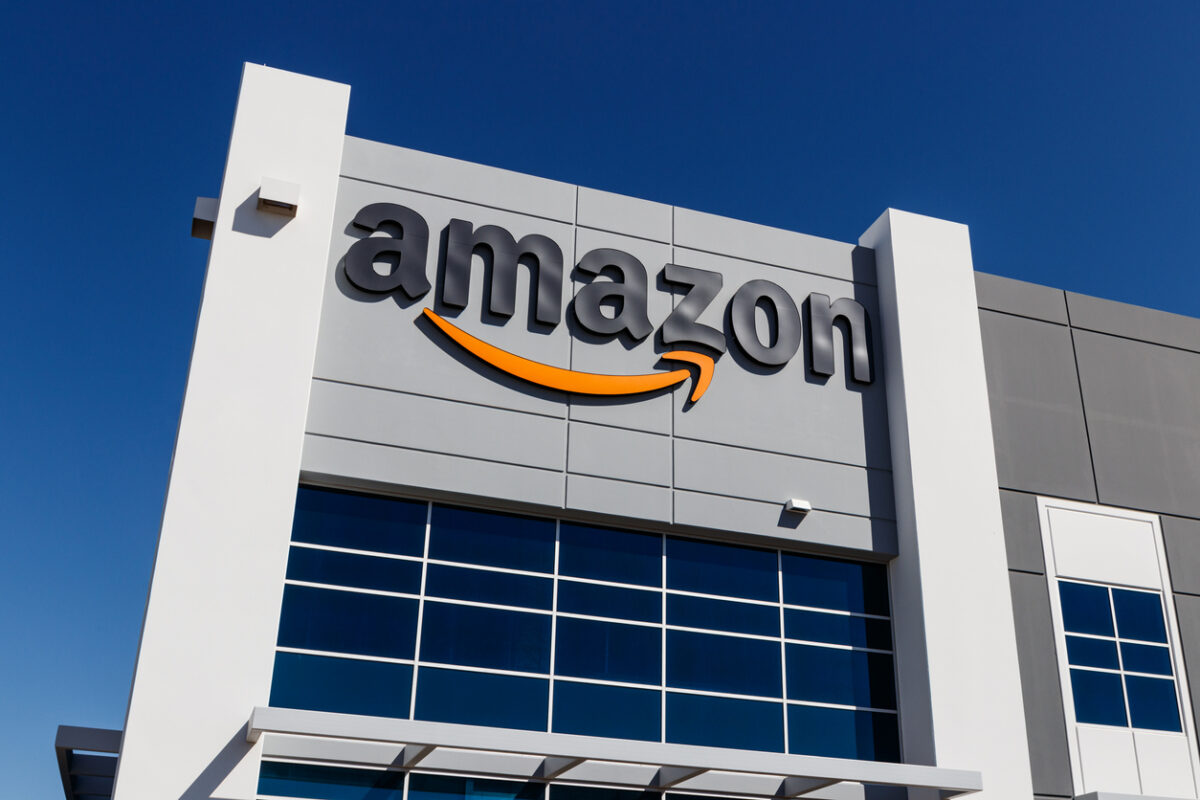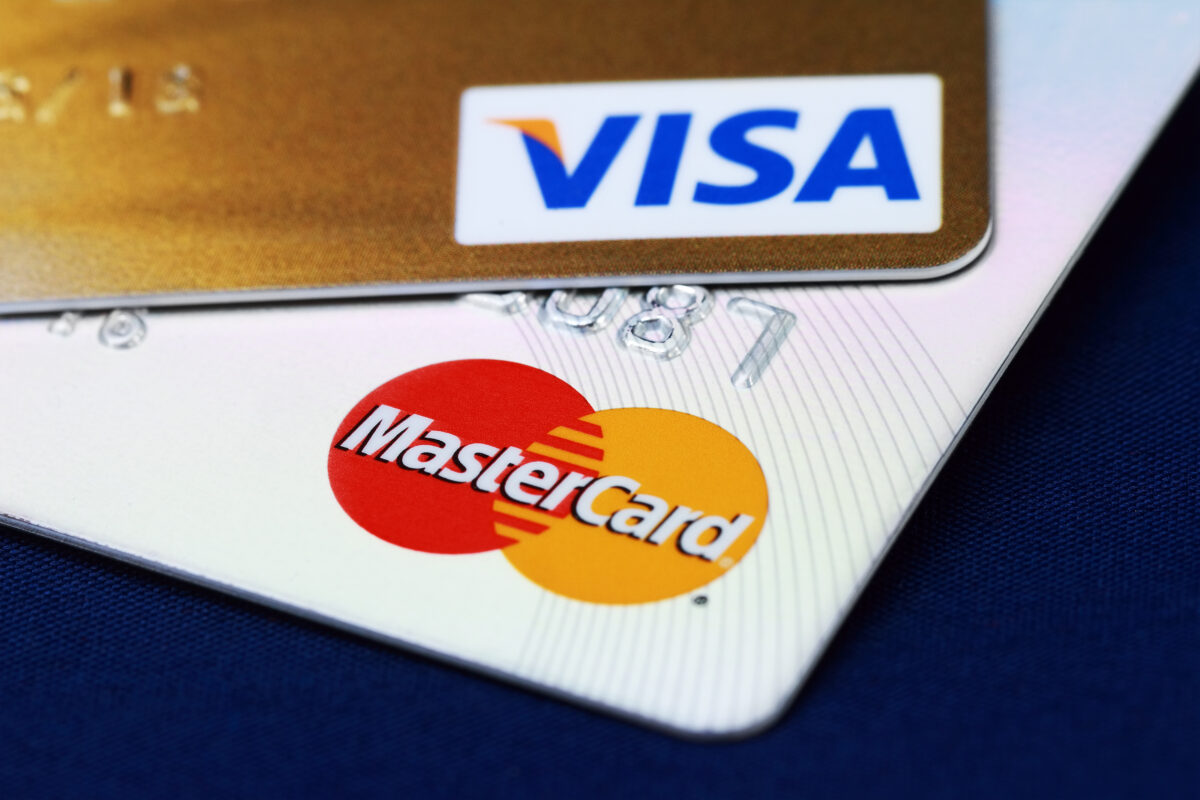Visa and Mastercard have been around for over half a century and have dominated the payments space. However, an announcement from global retail giant, Amazon, could change this; it will no longer be accepting Visa credit cards as a form of payment from the 19th of January 2022. See below as experts discuss if this is a knock-on effect of Brexit or a shifting attitude in the payments landscape.
Credit card fees make it hard to offer competitively low prices
The January deadline has been decided after Amazon claimed Visa was charging an extremely high fee for processing credit card transactions. However, Amazon will still be accepting Visa debit cards, so many have asked why this is such a big deal? The key element is the removal of consumer protection that a credit card can offer. Items bought using such cards currently benefit from Section 75 protection, an important UK consumer protection law made in the 1970s that means your credit provider has the same responsibility as the retailer if things go wrong with a purchase. That is providing the purchase was over £100 and up to £30,000. This rule only applies to credit cards – not debit cards.

The UK announcement comes two months after Amazon informed its Australian consumers that it would prefer it if they did not use a Visa credit card to make purchases. From November 1st, Australian consumers have had to pay a 0.5% surcharge fee each time they have used their credit cards.
“The cost of accepting card payments continues to be an obstacle to providing the best prices for customers,” an Amazon spokesperson told ZDNet. “These costs should be going down over time with innovation and technological advancements, which allows merchants to reinvest savings into low prices and shopping enhancements for customers. Yet, despite these advancements, some cards’ cost of payments continue to stay high or even rise.”
Following the announcement, Visa slammed Amazon for making the clash public whilst the companies were amidst negotiations. According to the BBC, Visa said in a statement it was “very disappointed that Amazon is threatening to restrict consumer choice in the future. When consumer choice is limited, nobody wins.”
It said it had “a long-standing relationship with Amazon” and that it was trying to resolve the situation so customers would be able to use Visa credit cards with Amazon UK.
“Whether or not this is about fees, or a smokescreen for something else, generally an Amazon customer won’t see much change”, Kevin Peachy, a personal finance correspondent told the BBC. “They just know they may have to change the way they pay on Amazon.”
Joel Kalili of TechRadar points out that some experts believe the public announcement could be a bargaining chip in ongoing negotiations.

Rise in Mastercard and alternative payments
Previously, both Visa and Mastercard have come under fire for charging excessive fees on credit card use with the BBC noting that retailers could be forced to pass on the extra costs to consumers, with credit card bills rising by another £40 a year in 2020. Despite this, Mastercard’s search soared by 16 times the average volume in one day according to Casionsites.org. The data also revealed that searches for ‘cancel Visa’ skyrocketed to over 700% on the 17th of November – nine times the average volume in one day.
Amazon has its own credit card, issued by Mastercard. In addition to incurring no surcharges, payments made using Amazon cards also earn customers rewards and money back on future purchases. There have been suggestions that Amazon’s Visa ban could be a move to drive its own card’s adoption.
Brexit meant that both Visa and Mastercard no longer had to adhere to the 0.3% interchange fee limit. As such, The Financial Times reported earlier this year that Visa planned to increase its cross border interchange fees from 0.3% to 1.5%.
City A.M. included comments from GlobalData payment analyst Chris Dinga, who noted that Amazon’s decision to only ban one of these companies “seems odd,” as both Visa and Mastercard look to increase fees. Dinga then points out that this starts to make more sense when “you remember that Mastercard is Amazon’s credit card issuing partner… This represents a unique opportunity for both Amazon and Mastercard, as they can take advantage of the situation to promote the Amazon credit card to customers.”
However, Amazon has firmly denied the Visa ban has anything to do with its own payment offerings as when approached by City A.M., an Amazon spokesman said: “Visa is a service provider to Amazon, not a competitor, and this action is entirely unrelated to our own payment offerings.”
Industry’s response

Petru Metzger, Head of Payments Delivery at Endava said:
“Businesses have long been held over a barrel by traditional credit card issuers, with few alternatives on offer. Amazon’s move to restrict the use of Visa credits cards is likely a negotiation tactic following Visa’s move to increase fees post-Brexit, however, it does underline the need for businesses large and small to transition to embedded, digital-first payment options rather than relying solely on the services of traditional credit or debit cards. We are hearing the willingness to do something similar from a number of large merchants so this could create a tsunami of changes in the market.
“Solutions driven by open banking and the connectivity it provides can be an effective and cost-efficient alternative for businesses, not only allowing instant transactions between retailers and consumers, but also allowing customers to take greater control of managing their finances. API integration, marketplace solutions, and better use of data is driving payments innovation in an industry that has been slower than others to bring about digital acceleration, and with it businesses can enhance real-time payments and tackle the dominance of traditional card providers.”

The idea of the traditional payments system being possibly replaced was echoed by Karl MacGregor, co-founder and CEO at Vyne:
“Amazon’s decision to no longer accept Visa credit cards in the UK is further evidence – if any was needed – that existing payments are broken and stacked against the merchants that rely on them.
“What makes this news particularly striking is that this is one of the biggest brands in the world recognising that merchants on its platform truly are at the mercy of payment giants. These businesses already fork out thousands of pounds per annum only to be greeted with mid-contract price hikes, which are more often than not imparted on the consumer.
“Fuelled by post-Brexit price hikes this will be the first of many big business clashes with a payments giant. But online retailers should be reminded that there are other options out there and accelerate their efforts to offer new methods, such as account-to-account payments, that bypass the traditional card schemes altogether, saving money and time for both the merchant and consumer.”

Jovi Overo, Managing Director of BaaS at Unlimint also agreed Amazon’s announcement was a negotiation move:
“I think Amazon’s strategy by bringing this to the public domain is probably a negotiation tactic. That’s how Amazon gets good press and free media coverage (at a time when all the recent news about Amazon are either associated with employee scandals or their CEO flying to space while climate change remains a very concerning issue). As Don Draper always says…’If you don’t like what is being said, change the conversation.’ Amazon is now being championed as the protector of customers’ purchase power vs. the ‘big bad’ card schemes. Amazon continues to play chess while everyone else plays checkers. I anticipate Amazon will soon be launching their own BNPL product. This would be an instant hit, have huge adoption, and add would bring in additional revenue. Will this be good for customers. Yes, but at what cost?”

Episode Six‘s co-founder and CEO, John Mitchell said:
“The trend we’ve seen this year has been to provide consumers with more opportunity to make purchases. Just look at the explosion of buy now, pay later, as one example. This move will likely incentivise certain cardholders to expand their digital wallets if they haven’t already. And while it’s too early to tell if other companies will follow suit, Amazon certainly pulls a lot of weight — arguably more so than other companies that may not want to prevent payment choice while they battle to manage network fees. From an issuing bank perspective, as we look to the future, these institutions will increasingly be propelled to add more payment options, even beyond fiat currency.”
Rob Keeve, CEO of Flow jumped to Visa’s defence saying:
“Many merchants on the eComm side don’t pass on the expensive fees, they simply eat it. If merchants were here talking today, they would say, ‘it’s painful having high fees on some payment methods, but we’d rather have the sale than not.’ It could be that the margin is 1% lower on those transactions, but losing that transaction entirely is a 99% loss, not a 1% loss.”
However, Peter Kimpton, a Financial expert and Chief Operating Officer at Family Money defended Amazon’s announcement saying:
“Due to Visa’s high credit card transaction fees, it’s no wonder Amazon is stopping their use on site. Although a market leader, Amazon needs to be able to remain competitive with their many online competitors, as well as small businesses that people are trying to support more and more, especially after the pandemic.
“With this in mind, they need to be able to charge the lowest prices possible and still make profit, so it makes sense that the first thing to try and make cuts on is transaction fees.
“Visa have responded by criticising Amazon for restricting consumer choice, however, I don’t feel this will be a problem, with many consumers opting to have more than one credit card as well as multiple debit cards. I predict Amazon will see no decrease in sales due to this change, and we might even see other large retailers following suit.”

James Booth, VP and Head of Partnerships, EMEA at PPRO, concluded the general view towards the announcement by saying:
“The move from Amazon to ban UK issued Visa credit cards is less so a direct result of Brexit and more to do with the wider sentiment in the payments space. Card fees are high, businesses are struggling to keep up and are being forced to pass down the cost to the consumer. This ban signals a move away from cards towards a more diversified payment ecosystem, that offers businesses and consumers greater choice and lower costs.
“77% of global online purchases are not made with an international credit card, but with a local payment method, be it wallets or bank transfers. In the UK, 52% of all payments are card-based, with Visa having an 82% market share of that, according to PPRO research. But this is changing rapidly as new payment methods are picking up pace.
“Offering a wider, global range of payment options is a good way for businesses to stand out from the competitive eCommerce landscape. But, even more importantly, it can lead to significant cost savings for these businesses.”
One of Visa’s largest defences against Amazon’s claim is that this will limit customer spending choices, however, by enforcing this change, if it really is more than a negotiation tactic, consumers will look to new avenues of payment, sparking the embracement of open banking and cryptocurrencies as a form of payment.




